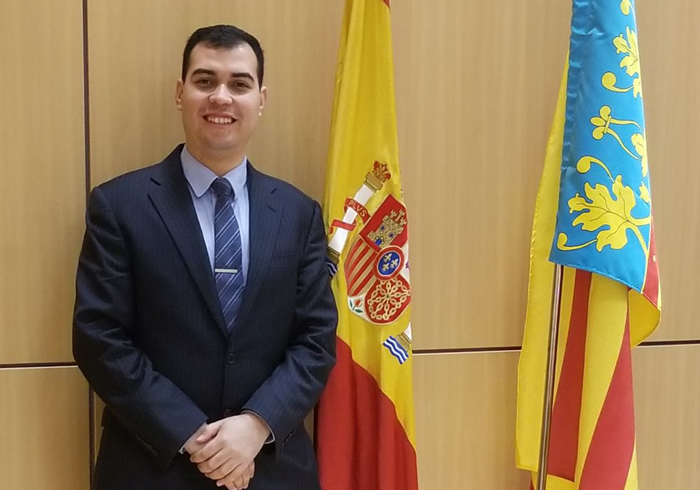
Honduran Luis José García has successfully defended his Master's Degree Final Project, in which he explained the current situation of Honduran legislation about taxes and suggested the introduction of ADR mechanisms for fiscal conflicts resolution.
11 october 2018
Title: Creation of ADR mechanisms in Honduran Tax Administration. Opportunities, challenges and approach.
Author: Luis José García
This Master's Degree Final Project has approached a major issue in Honduras: Tax Administration. The research comes from the paradigm shift in the relationship between Tax Administration and liable parties for tax payments and it suggests an active involvement of the latter and the taking on new ways that lead to agreement and cooperation, not confrontation. This is why it is important to analyse opportunities, challenges and consider the creation of ADR mechanisms that imply competitive advantages to the Servicio de Administración de Rentas (Tax Administration Office).
ADR mechanisms, whose field of application is wide, were thoroughly investigated
Because of this, ADR mechanisms, whose field of application is wide, were thoroughly investigated nationally and internationally. These were investigated in relation to commercial, banking and finance law, investments, consumption, insurance, tourism, energy, building, industrial and intellectual property, employment relationship, sports, health, leisure, community or electoral matters, family, professional, criminal or administrative responsibility... And most importantly tax matters under a descriptive and critical point of view that creates a clear panorama of ADR mechanisms on this branch of law and finally suggest its application in Honduran Tax Administration. Two different approaches were necessary for this Final Project: 1) Legal and descriptive approach, focused on the analysis of current enforceable laws and current situation of tax conflict in Honduras, and 2) Legal and suggestive approach, which proposes the creation of ADR mechanisms that imply maintainable competitive advantages to the Tax Administration Office in order to improve the relationship with liable parties.
This Final Project is made up of two parts. (1) First Part. Theoretic context of ADR mechanisms in tax matters and Honduran Tax Administration Office; and (2) Second Part. Analysis and addition of ADR mechanisms in tax matters.
This suggestion talks about the ideal ADR mechanisms in Honduras. Thus, the creation of the Defensoría Especial del Obligado Tributario (Special Defender Office for Liable Parties), which will act as a kind of Fiscal Ombudsman within the structure of the Comisionado Nacional de los Derechos Humanos (National Commissioner of the Human Rights); and, additionally, the creation of a tax arbitrage which in turn needs the creation two major things: A Tax Arbitrage Centre, dependent of the Superintendencia Tributaria y Aduanera (Customs and Taxes Superintendence), in turn attached to the Secretaría de Estado en los Despachos de Finanzas (Secretary of State in the Finance Department), and a Law of Tax Arbitrage.
the suggested ADR mechanisms in Honduras (Special Defender Office for Liable Parties) need the participation of several institutions
The suggested ADR mechanisms in Honduras (Special Defender Office for Liable Parties) need the participation of several institutions like: The Secretary of State in the Finance Department,the Tax Administration Office, the National Commissioner of the Human Rights and the Judiciary of Honduras; in addition to that it would also need support from the business sector, civil society and professional associations, among others in order for these mechanisms to become general and be implemented nationally. In turn, they would transform fiscal culture and would improve the relationship between the Tax Administration Office and liable parties for tax payments. Currently the conditions are ideal to implement these ADR mechanisms and it has been proven internationally that these alternative ADR have worked successfully on the field of tax law, which in turn means that it is feasible to implement them in Honduras.














